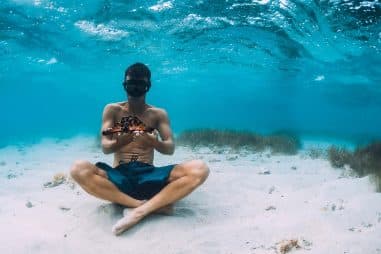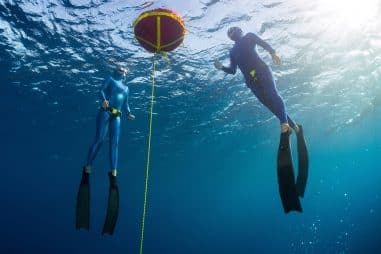
Freediving
Freediving is a form of underwater sport wherein you do not rely on breathing apparatus to be able to sustain your descent, your time underwater, and your ascent. Also referred to as skin diving, free diving, free-diving, and breath-hold diving, this extreme sport tests the power of your lungs, your ability to control your breathing, your focus, and your athleticism.
While it is an advantage to have prior experience in snorkeling or scuba diving, that is not a requirement for you to be able to get started on freediving. Many freediving schools offer various training ranging from the basic up to the most advanced. What does help in these beginner stages is your ability to be comfortable in the water.
Freediving lessons are usually done in stages. You would first need to gauge how long you can hold your breath underwater during the pool training. From this base number, you can work on prolonging your ability to hold your breath and you can work on a breathing pattern that you are comfortable with.
The next thing that you need to work on is managing your pulse while you do deep breathing exercises. To be able to start freediving, you must have a pulse of 80 beats per minute or even less. Only when you achieve this and when you get the go-signal of your instructor will you be able to train in the open water. Before then, you have to be able to properly equalize, and learn rescue skills and risk assessment.
The recommended freediving training duration is 15 hours which is done over a span of two to three days, and sometimes even longer. After which, you would need to earn your freediving certification before you can be allowed to dive in any open ocean diving spots.
You only need minimal gear to be able to freedive. The most basic freediving essentials include a mask, snorkel, and fins. As your skills progress, you would be able to decide on upgrading your gear.
Freediving is a fun sport that will push your abilities. Make sure to train under a qualified instructor and always remember to take the sport seriously. If pursued recklessly, freediving may lead to serious risks associated with the sport such as blackouts, hypoxic fits, barotrauma of the eyes, sinus, ears, and lungs, decompression sickness, and nitrogen narcosis.


